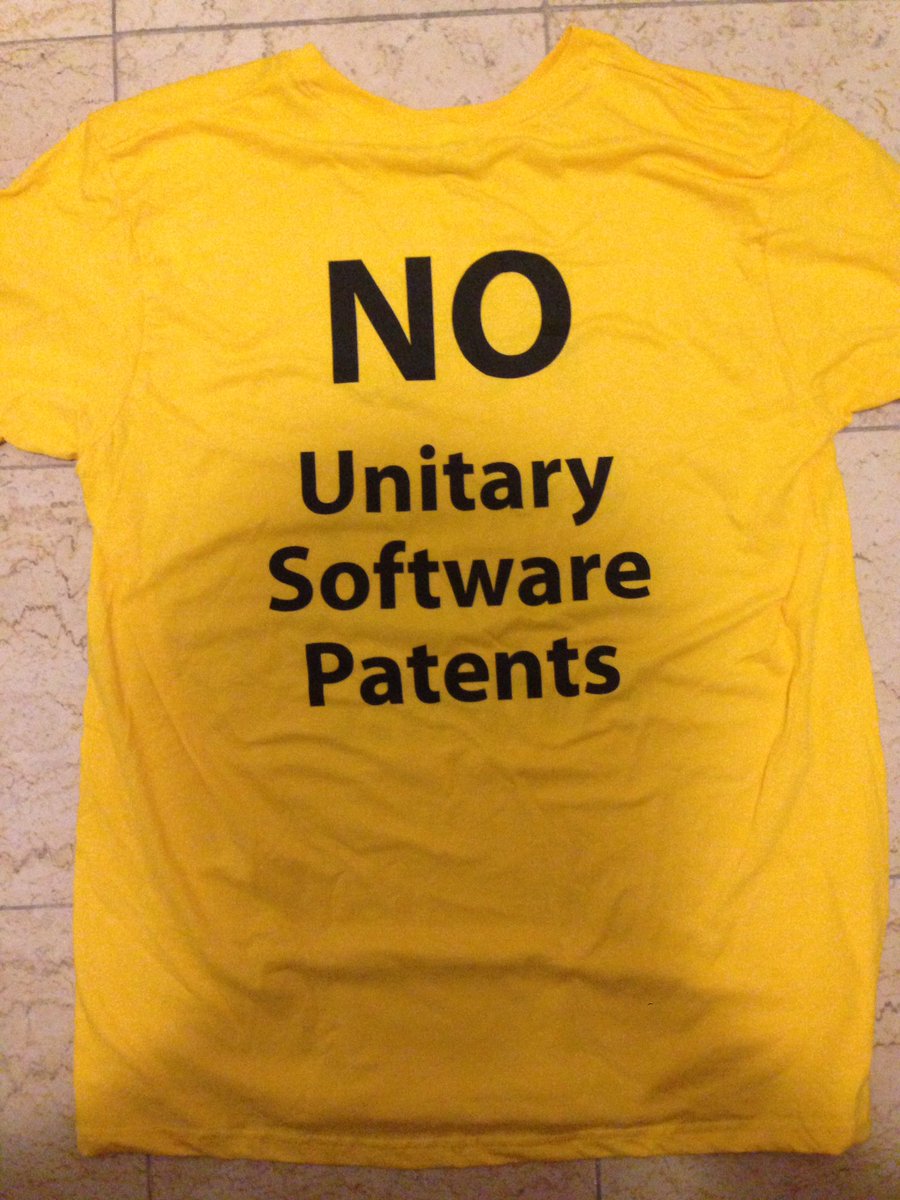

Image credit: Benjamin Henrion (FFII)
THE European Patent Office (EPO) does not seem to mind the EPC, which it flagrantly violates routinely. It doesn't care what courts say, either (or Parliament). António Campinos came from EU positions, so he should know better. Battistelli got his EPO job through connections (arguably the INPI job as well) and his current CEIPI job was set up by Campinos, who vacated this position if not reserved it. It's all corrupt. We find it ironic that a law school is literally run by a criminal now. Are lecturers and students all aware of it? Surely they all know of the Benalla scandals (if not other scandals as well).
"As judges are under attack, the EPC is misinterpreted and distorted (to justify violating it) and the violators misuse diplomatic immunity we end up with illegal European Patents being granted."The US patent system was shaken by 35 U.S.C. ۤ 101, which nowadays invalidates just about every software patent that lands on a court's or a judge's lap. We cover new examples in Daily Links almost every day (no detailed articles due to lack of time). Nothing has changed.
What about Europe? Totally different story. As judges are under attack, the EPC is misinterpreted and distorted (to justify violating it) and the violators misuse diplomatic immunity we end up with illegal European Patents being granted. Who's to stop it?
Just promoted in Lexology was this item from Kilburn & Strode LLP's Matt Aldridge and Kristina Cornish (patent litigation). It's about San Marino 'outsourcing' stuff to the EPO (within about 3 weeks):
It was announced at the end of November that, effective 1 January 2020, San Marino has closed the national route and thus will no longer accept European patent applications, or act as a receiving office under the PCT. This does not mean that patent protection in this mountainous microstate is not available, rather that all applications must now be filed directly with the European Patent Office (EPO).
Closing a national route to filing a European application is not new.
A dozen EPC contracting states have already closed their national route, namely:
Belgium, Cyprus, France, Greece, Ireland, Italy, Latvia, Lithuania, Malta, Monaco, the Netherlands and Slovenia.
Any PCT application must go through the EPO in order to obtain protection in these states.
Whilst this particular change is unlikely to have an impact on most filing strategies (there were only four applications made through the national route in San Marino in 2016), it is worth bearing in mind the potential advantages, and disadvantages, of using a national route when filing in Europe.
One of the top issues on the agenda for this year’s IPBC Australasia was software patent eligibility – we knew that in the run-up to the event, a Full Bench of the Federal Court of Australia could be issuing a key ruling in the area. As it turned out though, there was no landmark to discuss. To judge from this morning’s panel on the topic, that has created significant frustration among stakeholders.
The closely-watched case was that of Encompass Corporation Pty Ltd v InfoTrack Pty Ltd, in which the claims of two Encompass-owned innovation patents were held invalid (not directed to a “method of manufacture”). The judges dismissed Encompass’ appeal, but passed over the opportunity to set down bright line rules.